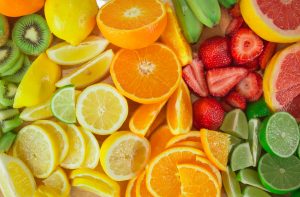
Eating is about more than just staying alive. Food can also be a social activity that brings people together or a hobby that helps open your world to other cultures and traditions. However, whether you are dining out with friends or trying a new recipe at home, you may need to be careful if you have sleep apnea. That’s because certain foods can actually worsen sleep apnea symptoms. Keep reading to learn which foods you should avoid if you have sleep apnea, along with some tasty alternatives.
Foods to Avoid If You Have Sleep Apnea
Fatty Meats
Eating a lot of fatty red meats can cause inflammation in the body, which is closely linked to heart disease. People with sleep apnea are already at an increased risk of cardiovascular problems. Eating fatty or highly processed meats like bacon, sausage, salami, ham, and hot dogs can increase your chances of heart trouble.
High-Fat Dairy Products
Dairy products that are high in fat can increase your mucus production, which can make your breathing problems associated with sleep apnea even worse. For this reason, avoid frequently consuming whole milk, cream, and certain high-fat cheeses, such as cheddar and Swiss.
Bananas
Bananas are a great source of fiber and potassium. However, if you have sleep apnea, you may want to think twice before snacking on one. Like high-fat dairy products, bananas can increase your mucus production, which can aggravate sleep apnea-related breathing problems.
Sleep-Friendly Foods
Foods with Melatonin
You may be familiar with melatonin, a natural sleep enhancer, in pill form. However, melatonin can also be found in many fruits and vegetables, such as cherries, corn, asparagus, tomatoes, grapes, broccoli, and cucumbers. Eating foods with this sleep-inducing hormone can help you get a good night’s rest.
Omega-3 Foods
Research has shown that low levels of Omega-3 fatty acids cause melatonin deficiency. Eating seafood items rich in Omega 3s, like salmon, tuna, and shrimp, can help your body produce more melatonin, which will benefit your sleep. Omega 3s also have anti-inflammatory properties and can help reduce the risk of cardiovascular disease, a serious condition associated with sleep apnea.
Tryptophan-Rich Foods
Have you ever wondered why you feel a bit sleepy after enjoying a Thanksgiving dinner? The reason is that turkey is rich in an amino acid called tryptophan. The body processes tryptophan into serotonin, which is eventually converted into melatonin. In addition to turkey, you’ll find tryptophan in chicken, fish, beans, nuts, and various vegetables.
Eating sleep-friendly foods can help reduce your sleep apnea symptoms. However, it’s important to remember that adjusting your diet is not the only way to take action. If sleep apnea is interfering with your daily quality of life, don’t hesitate to ask a sleep dentist about treatment options, like oral appliance therapy.
About the Author
Dr. Pamela West has over three decades of experience helping patients maintain healthy smiles and achieve quality sleep. She is a Diplomate with the American Academy of Dental Sleep Medicine and operates the first and only accredited dental sleep facility in Las Vegas. To learn more about how certain foods can affect your sleep apnea symptoms, visit the iSleepSolutions website or call 702-844-6226.
